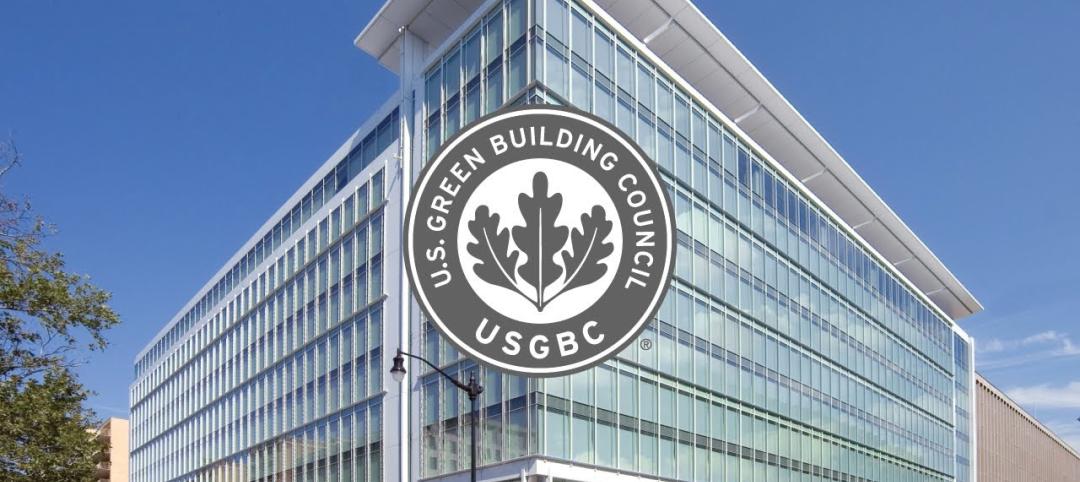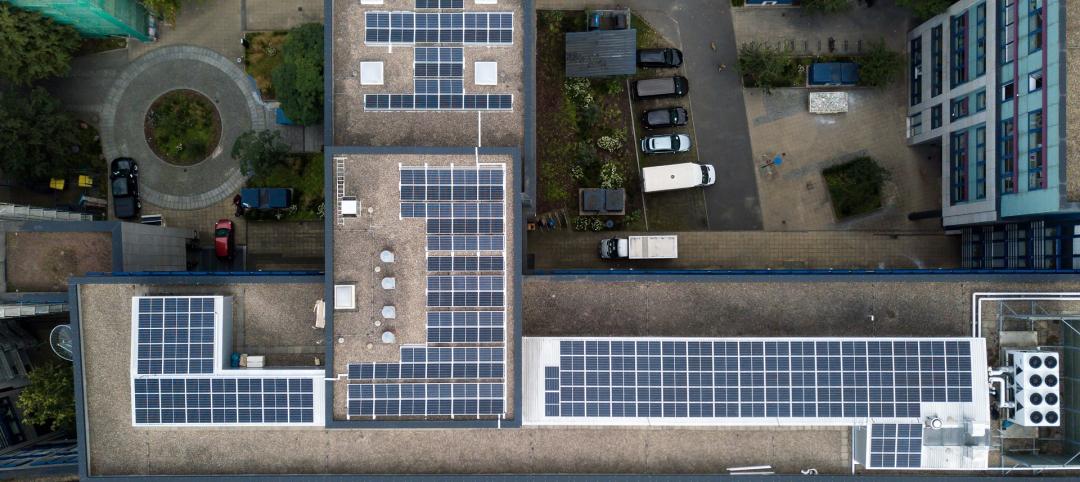The U.S. General Services Administration (GSA), and the U.S. Department of Energy (DOE) will invest $30 million from the Inflation Reduction Act to increase the sustainability of federal buildings by testing novel technologies.
The vehicle for that effort, the Green Proving Ground (GPG) program, will invest in American-made technologies to help increase federal electric vehicle supply equipment, protect air quality, reduce climate pollution, and enhance building performance. This year the GPG program has selected 20 emerging and sustainable technologies for real-world evaluation in GSA’s real-estate portfolio.
The number of technologies tested this year increased four-fold increase over previous years with added funding from the Inflation Reduction Act.
This year’s GPG program focuses on seven technology areas:
- Electric Vehicle Supply Equipment: Turnkey electric vehicle charging infrastructure from Loop Global, optimized charging through charge management software from bp pulse, a battery-buffered DC fast charger from ADS-TEC Energy, and vehicle grid integration (VGI) technology from General Motors LLC.
- Germicidal Ultraviolet technologies: Next-generation LEDs and Far-UVC light to disinfect air without increasing ventilation. The GPG program will evaluate technologies that support healthier buildings while reducing energy use from Far UV Technologies, R-Zero, and PURO (subsidiary of Applied UV Inc.) with the Academy Energy Group.
- Greenhouse Gas Accounting: Technologies essential to achieving 24/7 carbon-free electricity and net zero operational emissions. Cambio AI and nZero will aim to go beyond annual greenhouse gas reporting to operationally focused carbon management, including near-real-time 24/7 carbon-free electricity insights and impacts.
- Grid-Interactive Efficient Buildings: Delivering cost savings by leveraging technologies and strategies that provide continuous demand management and load flexibility. The energy management platform from COI Energy aims to optimize energy use through machine learning.
- High-Performance technologies: Helping reduce operational and embodied carbon emissions by evaluating automated aerosol-based duct sealing from Aeroseal; an Internet-of-Things (IoT) lighting system from Signify North America Corporation; and bio-engineered, low-embodied-carbon concrete from Biomason. DOE will seek commercial partners to validate Toggled, a plug load control solution, and a thermostatic radiator cover and hybrid electrification solution from Kelvin.
- Onsite Renewables: Technology essential to meeting the Administration’s net zero operational emission goals. The GPG program will evaluate an energy storage technology from Yotta Energy that is the size of a large laptop and installed in place of ballast beneath a rooftop photovoltaic system. The program will also pilot a wind turbine from Accelerate Wind that can be installed at the edge of the building roof and complement rooftop solar.
- Window Retrofit technologies: Help improve the performance of a building’s exterior envelope by evaluating three technologies: vacuum-insulated glazing from Pilkington; R14 interior window retrofit system from Vitro Architectural Glass; and, a secondary window framing system from Indow.
Some of these technologies will be tested at GSA’s Applied Innovation Learning Labs to identify replicable combinations of technologies that deliver net-zero operational emissions.
Related Stories
Energy Efficiency | Dec 6, 2022
Washington state’s Building Code Council mandates heat pumps in all new residential construction
The Washington State Building Code Council has voted to require heat pumps for all new residential construction starting in July 2023. The new mandate has drawn criticism over concerns that it will add costs to housing construction, especially given current supply chain challenges for heat pumps.
Geothermal Technology | Dec 6, 2022
Google spinoff uses pay-as-you-go business model to spur growth in geothermal systems
Dandelion Energy is turning to a pay-as-you-go plan similar to rooftop solar panel leasing to help property owners afford geothermal heat pump systems.
K-12 Schools | Nov 30, 2022
School districts are prioritizing federal funds for air filtration, HVAC upgrades
U.S. school districts are widely planning to use funds from last year’s American Rescue Plan (ARP) to upgrade or improve air filtration and heating/cooling systems, according to a report from the Center for Green Schools at the U.S. Green Building Council. The report, “School Facilities Funding in the Pandemic,” says air filtration and HVAC upgrades are the top facility improvement choice for the 5,004 school districts included in the analysis.
Legislation | Nov 23, 2022
7 ways the Inflation Reduction Act will impact the building sector
HOK’s Anica Landreneau and Stephanie Miller and Smart Surfaces Coalition’s Greg Kats reveal multiple ways the IRA will benefit the built environment.
Green | Nov 13, 2022
USGBC updates LEED v4 to better address greenhouse gas emissions and climate change
The U.S. Green Building Council (USGBC) will update the LEED v4 green building certification program to “more directly address greenhouse gas emissions and climate change” according to a USGBC news release.
Green | Nov 13, 2022
NREL report: Using photovoltaic modules with longer lifetimes is a better option than recycling
A new report from the U.S. National Renewable Energy Laboratory (NREL) says PV module lifetime extensions should be prioritized over closed-loop recycling to reduce demand for new materials.
Green | Nov 13, 2022
Global building emissions reached record levels in 2021
Carbon-dioxide emissions from building construction and operations hit an all-time high in 2021, according to the most recent data compiled by the Global Alliance for Buildings and Construction.
University Buildings | Nov 13, 2022
University of Washington opens mass timber business school building
Founders Hall at the University of Washington Foster School of Business, the first mass timber building at Seattle campus of Univ. of Washington, was recently completed. The 84,800-sf building creates a new hub for community, entrepreneurship, and innovation, according the project’s design architect LMN Architects.
Industry Research | Nov 8, 2022
U.S. metros take the lead in decarbonizing their built environments
A new JLL report evaluates the goals and actions of 18 cities.
Green | Nov 8, 2022
USGBC and IWBI will develop dual certification pathways for LEED and WELL
The U.S. Green Building Council (USGBC) and the International WELL Building Institute (IWBI) will expand their strategic partnership to develop dual certification pathways for LEED and WELL.

















